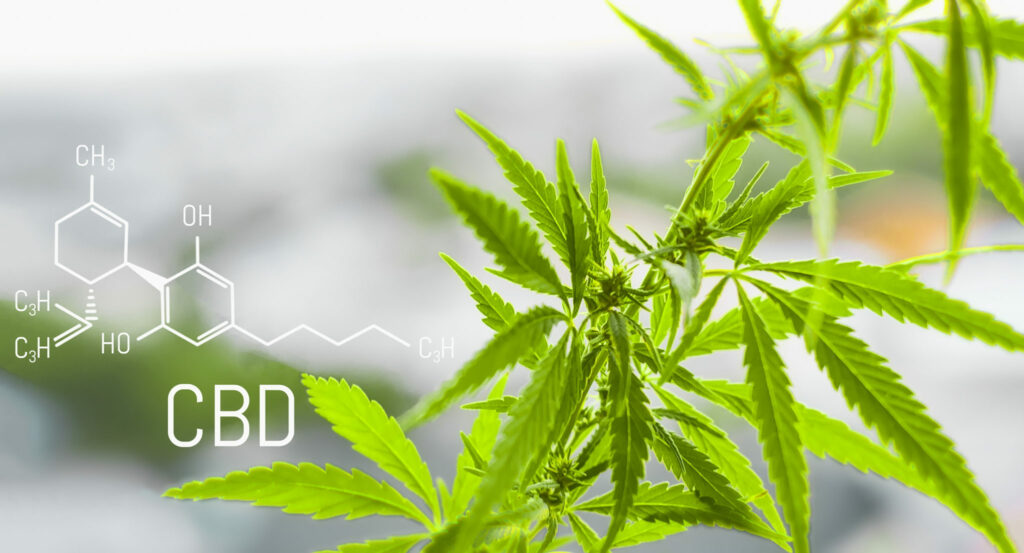Introduction
CBD, short for cannabidiol, has become a buzzword in recent years due to its potential therapeutic benefits and widespread availability in various products. But what exactly does CBD stand for, and what is its significance? In this comprehensive guide, we will explore the meaning of CBD, its origins, its interaction with the body’s endocannabinoid system, potential benefits, and legal considerations
CBD Definition and Origins
CBD is one of the many naturally occurring cannabinoids found in the cannabis plant. It was first identified in the 1940s and later isolated in the 1960s by Israeli chemist Dr. Raphael Mechoulam. CBD is extracted from the Cannabis sativa plant, which includes both marijuana and hemp varieties.
Interaction with the Endocannabinoid System (ECS)
To understand the significance of CBD, it is crucial to explore its interaction with the endocannabinoid system (ECS). The ECS is a complex network of receptors, endocannabinoids (cannabinoids produced by the body), and enzymes that play a vital role in regulating various physiological processes such as mood, sleep, appetite, pain sensation, and immune response.
CBD interacts indirectly with the cannabinoid receptors within the ECS, known as CB1 and CB2 receptors. Unlike THC, another well-known cannabinoid, CBD does not bind directly to these receptors. Instead, it modulates their activity and influences the production and breakdown of endocannabinoids. This interaction contributes to the potential therapeutic effects of CBD on the body.
Potential Benefits of CBD
CBD has gained attention for its potential therapeutic properties, and research is ongoing to explore its various applications. Some of the potential benefits associated with CBD include
- Pain Relief: CBD may have analgesic properties and can potentially help reduce pain associated with conditions such as arthritis, multiple sclerosis, and chronic pain syndromes.
- Anxiety and Stress Management: CBD has shown promise in reducing anxiety and stress by interacting with serotonin receptors in the brain. It may help alleviate symptoms of generalized anxiety disorder, social anxiety, and post-traumatic stress disorder (PTSD).
- Sleep Improvement: CBD may promote better sleep by reducing anxiety, alleviating insomnia, and influencing the sleep-wake cycle. It has been studied for its potential benefits in sleep disorders and improving sleep quality.
- Neuroprotection: CBD has demonstrated neuroprotective properties and may help protect against neurodegenerative diseases such as Alzheimer’s and Parkinson’s. It may also assist in managing conditions like epilepsy and multiple sclerosis.
- Anti-inflammatory Effects: CBD exhibits anti-inflammatory properties and may help reduce inflammation in conditions such as arthritis, inflammatory bowel disease, and autoimmune disorders.
Legal Considerations
The legal status of CBD varies depending on its source and jurisdiction. In the United States, CBD derived from hemp containing less than 0.3% THC is federally legal under the 2018 Farm Bill. However, individual states may have their own regulations regarding the sale, possession, and use of CBD products. It is important to research and understand the specific laws in your area.
Internationally, CBD laws differ from country to country. Some nations have legalized CBD for medical or recreational use, while others strictly regulate or prohibit it. If you are traveling internationally, it is crucial to familiarize yourself with the legal status of CBD in your destination country to avoid any legal complications.
Conclusion
CBD, short for cannabidiol, is a naturally occurring cannabinoid found in the cannabis plant. Its interaction with the endocannabinoid system offers potential therapeutic benefits, including pain relief, anxiety management, improved sleep, and neuroprotection. Understanding the meaning and significance of CBD is essential for those seeking to explore its potential benefits. However
However, it is important to note that while CBD holds promise for various health conditions, more research is needed to fully understand its mechanisms of action, potential side effects, and long-term effects. It is always recommended to consult with a healthcare professional before incorporating CBD into your wellness routine, especially if you have any underlying health conditions or are taking medications.
When purchasing CBD products, it is crucial to choose reputable brands that prioritize quality and safety. Look for products that have undergone third-party testing to ensure their potency, purity, and absence of contaminants. Additionally, consider the extraction method used to obtain CBD, as some methods may result in a higher-quality product than others.
In conclusion, CBD, short for cannabidiol, is a cannabinoid found in the cannabis plant that has gained significant attention for its potential therapeutic properties. It interacts with the body’s endocannabinoid system and may offer various benefits, including pain relief, anxiety management, improved sleep, and neuroprotection. Understanding the meaning of CBD and its potential benefits can empower individuals to make informed decisions about its usage. However, it is crucial to be aware of the legal considerations surrounding CBD and to consult with a healthcare professional before incorporating it into your wellness routine

